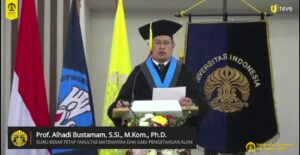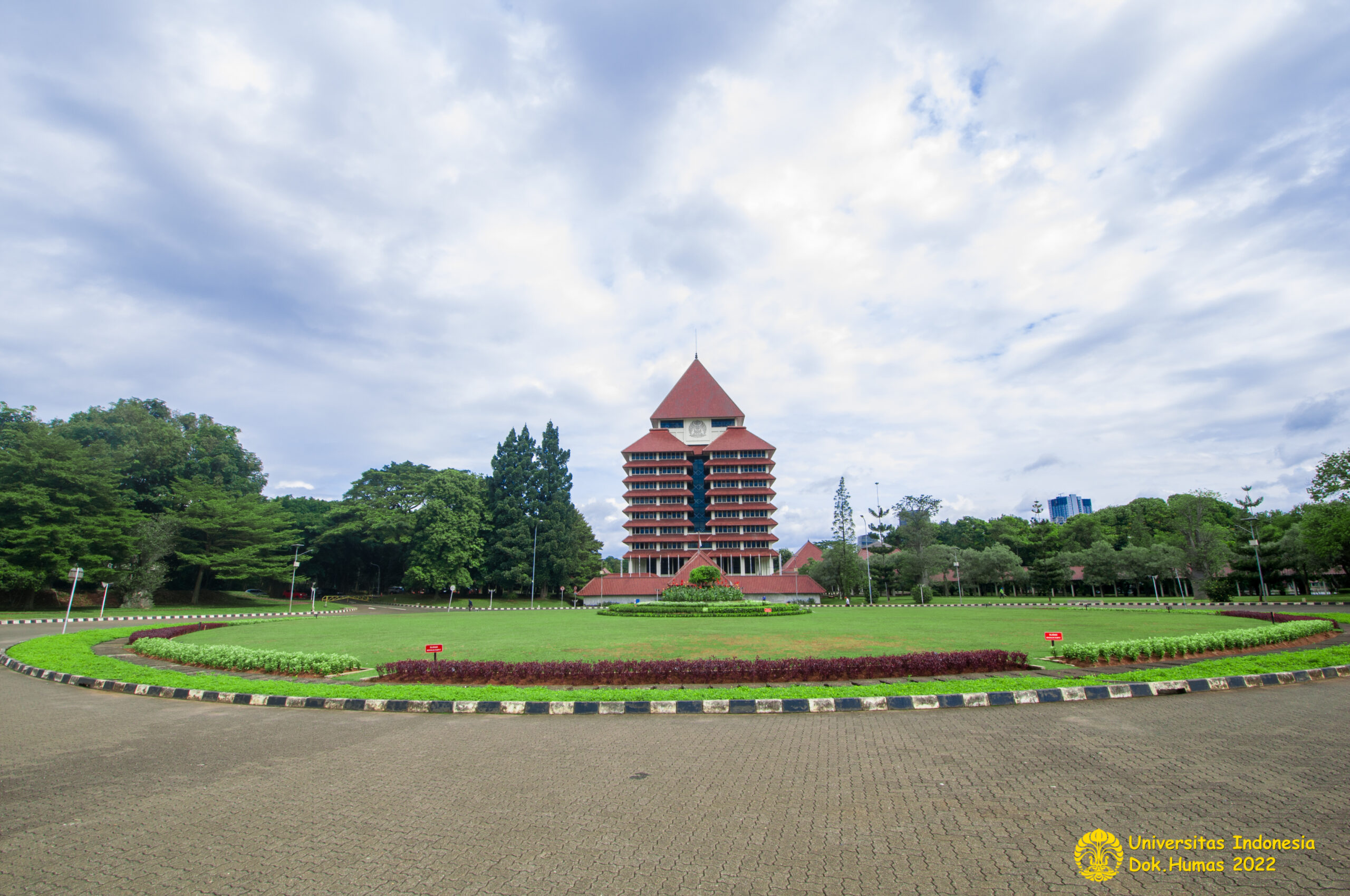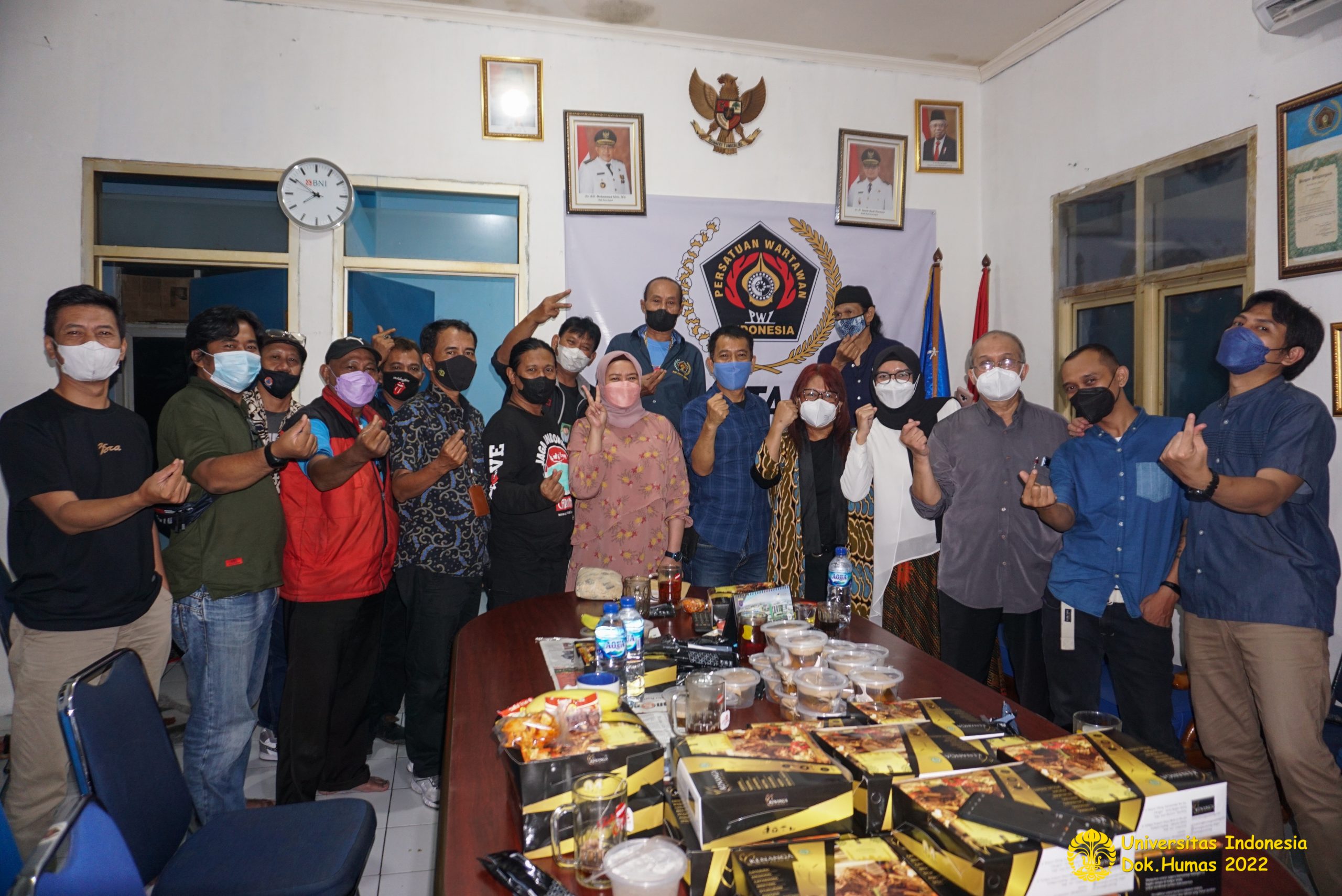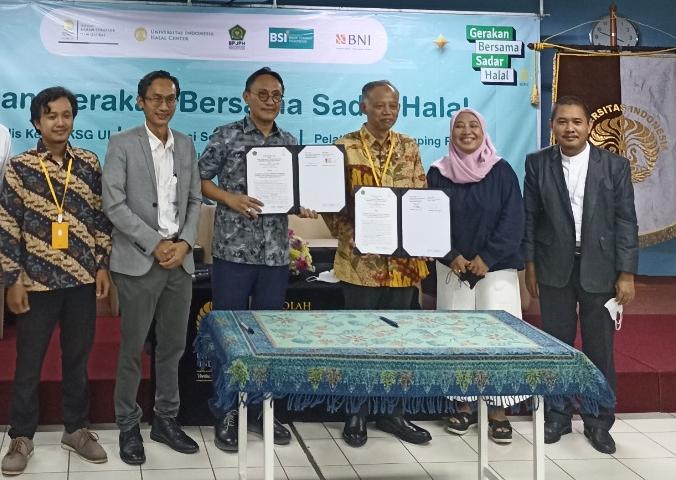
Progress in the Industrial Revolution 4.0 era has pushed all fields to do a data digitizing, this is including the health sector. Data Science which is a combination of the fields of mathematics, computers, and domain expertise plays an important role in this. The existence of Data Science is one of the multidisciplinary sciences that is very rapidly developing and applied as a solution to form collaborations in the fields of science, industry, government, and other related fields.
Prof. Alhadi Bustamam, S. Si., M. Kom., Ph.D., in a research entitled “The Strategic Role of Computational Mathematics and Data Science in the Multidisciplinary Era of Bioinformatics, Big Data and Artificial Intelligence” sees the role of Computational Mathematics and Data Science for research in various fields. Computational mathematics is a branch of science to solve problems involving the management, processing and analysis of computational data. Computational Mathematics is the main pillar of Data Science and its applications in the fields of Bioinformatics, Big Data, and Artificial Intelligence (AI).
Bioinformatics is an interdisciplinary field that focuses on the application of computational mathematics, statistics, and life sciences in managing and interpreting biological data. Currently, Bioinformatics is jumping into a new era of “big data” by generating big data in everyday life, such as in genomics research. Big Data itself is a collection of data that is very large, complex, and growing all the time. Meanwhile, Artificial Intelligence (AI) is the ability of a system to correctly interpret external data, to learn from that data, and to use it to achieve certain goals and tasks through flexible adaptation.
Prof. Alhadi applies and applies Data Science, Big Data, and AI in the telemedicine healthcare and entrepreneurship fields. In the field of telemedicinetelemedicine, development is realized through the creation of applications to detect diseases through eye fundus images; malaria detection through red blood cell imagery; dengue detection through red blood cell images and lab data; detection of Alzheimer’s and Parkinson’s diseases through MRI images; and detection of cancer through image data and gene expression data.
In addition, the detection of heart disease is also carried out through ECG signals; stunting condition of children through ultrasound data; Tuberculosis disease; and Candidates for Type-2 Diabetes Drugs through molecular compound data using the QSAR approach. This research was further developed in collaboration with UMG IdeaLab, IMERI Universitas Indonesia’s Faculty of Medicine, Cipto Mangunkusumo Hospital (RSCM), Universitas Indonesia Hospital (RSUI), and Universitas Indonesia (UI) Advisory.
In the field of entrepreneurship, the role of computational mathematics through Data Science and AI is applied to several studies, including the detection of diseases of rice and rubber plants through leaf imagery; development of insurance application in terms of underwriting examination in hospital administration; and development of models for smart cities. Research on disease detection of rubber plants through leaf imagery was carried out in collaboration with SATREP RIKEN Japan. The aim is to prevent rubber plants from disease or even crop failure, with early detection through digital images obtained from satellites.
To detect disease in rice, the research collaborated with BRIN LAPAN. Rice plant diseases such as tungro which come from viruses, fungi, and bacteria can inhibit rice production in Indonesia. The leaves of rice plants affected by disease can be used as an indicator of the type of disease because each disease of rice plants has a unique pattern on the leaves of rice plants. Disease detection in rice plants is done through the image of the leaves of rice plants.
Meanwhile, in the field of entrepreneurship related to insurance and chatbots, research was conducted with URIMO-Life. The insurance offered by URIMO-Life contains elements of Bioinformatics, Data Science, and AI because in addition to checking the health condition of the insured, researchers also calculate premiums based on the patient’s biological age.
Prof. Alhadi sees prospects in developing research related to Computational Mathematics, Data Science, Bioinformatics, Big Data and AI in a multidisciplinary era. The prospect of research development includes research collaboration with related faculties/fields, government, and industry; MBKM program and introduction to Data Science and AI at school level; strengthening human resources; and the formation of startups in the fields of Data Science and AI. In addition, this field of science also has a major role in the development of research in the fields of life science, health and entrepreneurship through collaboration between disciplines, such as Mathematics, Biology, Pharmacy, Medicine, Chemistry, and Computer Science, and others.
After the speech, Prof. Alhadi was officially inaugurated as a Permanent Professor of Computational Mathematics, Faculty of Mathematics and Natural Sciences (FMIPA), University of Indonesia (UI). The inauguration of professors was led by the Rector of UI, Prof. Ari Kuncoro, SE, MA, Ph.D., and broadcast live virtually through the Universitas Indonesia’s Teve Youtube channel.
The event which was held on Saturday (6/8) was attended by invited guests, including the Commander of the Iskandar Muda Regional Military Command, Major General of the TNI Moh. Hasan; Head of the Center for Social Welfare Data and Information, Prof. Dr. Agus Zainal Arifin, S. Kom., M. Kom.; PAK UI Adhoc Team Leader, Prof. Heru Suhartanto, Drs, M.Sc., Ph.D.; UGM Professor, IndoMS Advisor, Prof. Dr. Sri Wahyuni, S.U.; CEO of Global Risk Management (GRM), Rinaldi Anwar, S.Si, MM, FSAI; Ph.D. Supervisor, Professor Queensland University of Technology (QUT), Australia, Prof. Dr. Kevin Burrage; Professor Perdana University (Malaysia), Prof. Mohammad Asif Khan, Ph.D.; UNPAD Professor, IndoMS Advisor, Prof. Dr. Budi Conscience Ruchjana, MS; Head of SAU UNAND, Prof. Dr. Syafrizal; and Professor of ITB, Indonesian Association of Biomathematics, Prof. Edy Soewono, Ph.D.
Prof. Alhadi Bustamam, S. Si., M. Kom., Ph.D. is a Lecturer and Head of the Mathematics Department, FMIPA UI. He completed his undergraduate studies in Mathematics, FMIPA UI in 1996; Master’s degree in Computer Science, Fasilkom UI in 2002; and a PhD in Advanced Computing in Bioinformatics form the School of Mathematics and Institute for Molecular Bioscience, The University of Queensland (UQ), Australia in 2011.
Several recent scientific papers have been published, including Development of Artificial Intelligence Analysis to Assess Meibomian Gland Dysfunction (MGD) in Dry Eye Disease Using Meibographic Imaging (2022); Genomic Sequence Analysis on Covid-19 and Other Infectious Diseases using the In Silico Approach and Big Data Analytics (2022); Genomics Analysis on Multimodal Data for the Detection of Dengue Hemorrhagic Fever (DHF) and Chronic Diseases using the Feature Selection Fusion Approach (2022); and AI and Chatbot Applications and Applications for Intelligent Healthcare (2021).



